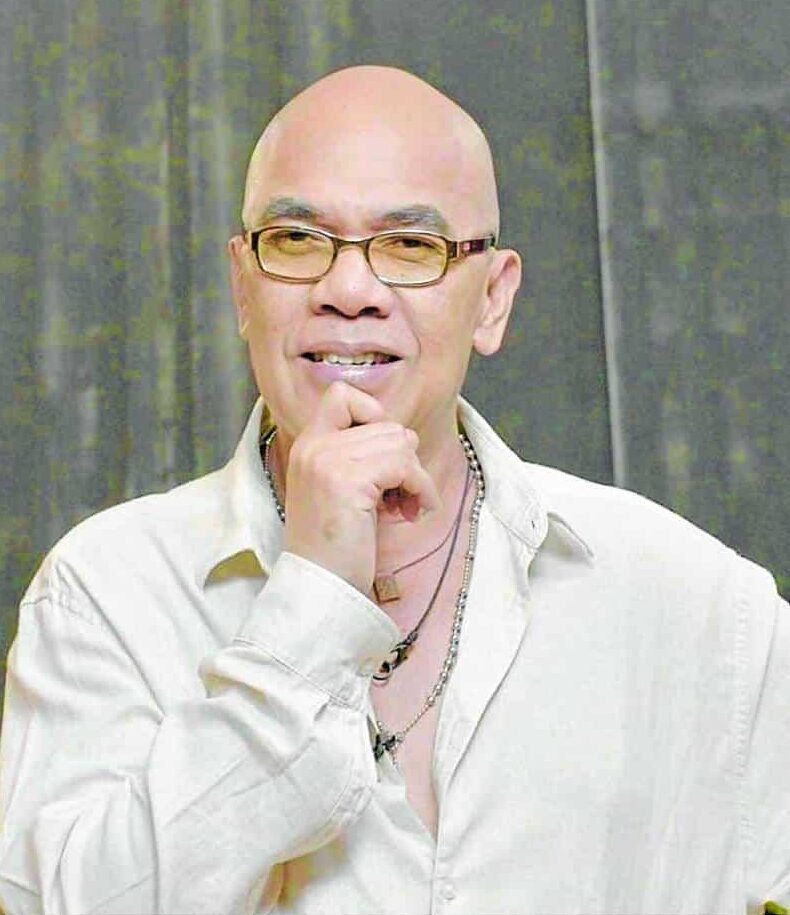Revelatory moments in Boy Abunda’s interview with Vilma Santos, Luis Manzano

Boy Abunda —CONTRIBUTED photo
Long before Tito Boy Abunda became the “King of Talk,” he was already award worthy as a son. “Sistah” (as we fondly call each other) is a certified mama’s boy. Even if his beloved Nanay is already up above, she’s still the wind beneath his wings.
To honor the memory of his mom, Tito Boy is hosting a limited talk series on GMA 7, “My Mother, My Story” (MMMS). He will share the life stories of celebrities through the lens of their relationships with their mothers.
MMMS premiered on Mother’s Day and will air every second Sunday of the month until October at 3:15 p.m. Vilma Santos and Luis Manzano were featured in the pilot episode. Join Tito Boy as he pays homage to the queens of celebs’ hearts.

Vilma Santos (left) and Luis Manzano —VILMA SANTOS/ INSTAGRAM
Here’s my chat with Tito Boy:
What did you discover about Ate Vi and Luis?
Article continues after this advertisementThat they live for each other. I discovered the fascinating relationship between mother and son … how Vi tried to make him experience the ordinary life, that she could be an ordinary mother who could go to the grocery with her son and pick up the toys and chocolate bars that he wanted.
Article continues after this advertisementThree steps out of the car, they were mobbed and, in the words of Luis, “I am grateful to God because I am blessed with the gift of understanding… I understood my Mom.” He also understood that, as Vi would describe herself, “I was, I am public property,” but she did her best just the same.
I also discovered that their relationship is just like the relationships between mothers and their boys. Luis went through rough patches in his life. During one confrontation, he told her, “Mom, I don’t know what I want.”
One of the most emotional moments of the interview was when I asked Luis, “How will you handle it if one day, 20 years from now, Peanut would tell you, “Dad, I don’t know what I want.”
They have so much love and respect, and they honor each other. Vilma honestly admitted that she could have had more time with her son, but she too had a life, she too had challenges, and she too had to take care of the world … and Luis understood her. This is one of the most interesting relationships I have tackled in an interview.
Tell us about the concept of “My Mother, My Story.”
There are two stories featured in “My Mother, My Story”—the story of a mother through the lens of her child and the story of the son and what he has become and what he has not become because of his mother.
What advice from your mother was the hardest one to follow?
Nanay said, “Stop talking” or “Don’t talk too much.” Ironically, I live and work in the business of talk.
What was your biggest realization after your Mom passed away?
That maternal love is eternal and it goes beyond this lifetime, that even in death my Nanay is still so much a part of my life. Every time I make a decision, I still ask, “What would Nanay think?” If I did this, how would Nanay react, and I would catch myself doing certain things exactly the way Nanay would have done them.
What’s your advice to those in mourning and are having a hard time moving on after losing their mom?
Don’t deny the pain … embrace it! In the beginning, I wanted my grief and pain to pass, I wanted it to lose its power, only for me to realize that pain stays. I’m still in pain and in grief. But I look at it differently now. The pain connects me to my mother, so I have embraced it.
Would you say that mothers play a more pivotal role than fathers in shaping the life of their kids just like what the title of your show implies?
The title of the show does not mean to imply that. Each one has a different story, some people are more affected by their relationships with their fathers. The show simply tackles mothers because it is aligned with what I personally stand for, coming from my life mantra, “Make Your Nanay Proud.”
What the show is trying to remind people is to love our parents, and remember that fathers have mothers, too. We do not exclude anybody in MMMS. This is a special about single mothers, LGBT mothers, lolos, lolas, daughters, fathers and mothers. MMMS is simply a handle.
If there is anything that I’d like to achieve, it is to remind people to harness love between parents, between mothers and children, so it can be a transformative force to make us better people, better parents, and to remind us that love comes in different ways, that loving is not tantamount to sending a text or voice message.
This should be combined with putting your arms and hugging and kissing nanay. It’s the voice, the personal interaction, the conversation. It’s looking at each other in the eyes, It is being together, laughing together or sometimes inevitably crying together.
What the show is trying to say is wherever we go in this digital age, we must not forget to strengthen the family using maternal love, paternal love, filial love and familial love. That is the message of MMMS.